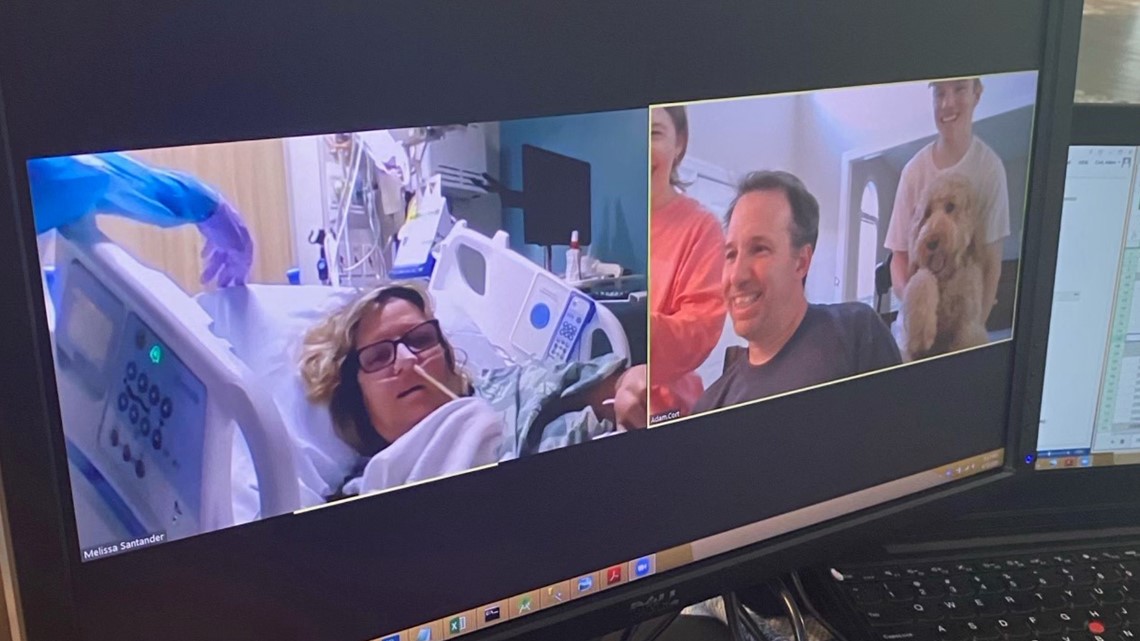CHARLOTTE, N.C. — One year ago, Wendy Cort made a triumphant discharge from the hospital. Cell phone videos show the nurse educator and mother of three arriving home to a crowd of loved ones cheering her on--a warm welcome home.
But despite that initial victory over COVID-19, Cort is still battling the effects of the virus.
"I've actually begun to face the reality that... this may be my new normal," Cort said.
Cort was working at a COVID-19 testing site last March when she first got sick and eventually went to the hospital.
"I was on a ventilator for 15 days and actually got much worse before I got better. I think I had every complication in the book," Cort said.
Survival was in her future though, and after more than 20 days getting hospital care, Cort was back home, where she rehabbed, teaching herself to walk and eat again.
Post-COVID, she experienced a wide range of strange symptoms, like blurry vision and hair loss. Some health effects improved.
Others didn't.


To this day, Cort says she deals with fatigue, brain fog, and hearing impacts that have progressed to tinnitus, or ringing in the ears.
"I was sent from specialist to specialist, and everybody just kind of scratched their head and said, 'I don't know. What is this?'" Cort said.
Doctor Megan Donnelly is a neurologist with Novant Health and says many former COVID-19 patients are coming to her and not all had the virus as bad as Cort did initially.
"Interestingly, a lot of patients who had mild to moderate disease rather than moderate to severe disease are experiencing symptoms of long COVID," Donnelly said.
According to Donnelly, some research shows as many as one in ten coronavirus patients will develop long COVID, and it's hard to predict whom it will strike.
"Like COVID itself, it does not discriminate. We're seeing young, otherwise healthy patients who are developing long COVID," Donnelly said.
While only time and more research will shed more light on this condition, Donnelly says, at least right now, it appears to be an immune response, not an ongoing infection.
"This is not new for us to see this," Donnelly said, noting there are other viruses that can leave behind a wake of similar effects. "It's just that now we're finally having a viral disease that's causing it in such great numbers that it's bringing light to this much more."
There is no treatment for long COVID itself, Donnelly says, but doctors are working to treat the symptoms that come with it.
Although Cort still has impacts from COVID-19 a year after her infection, she is heartened by any small, continued progress she sees as time goes on and is thankful for the incredible support from her family and colleagues.
She says she's coming to terms with having to wait for answers.
"It's frustrating. You think, 'when am I going to be back to myself again?'" Cort said. "This has been a little bit tricky to try to navigate through this and listen to my body and when I need to shut down, I need to shut down."

